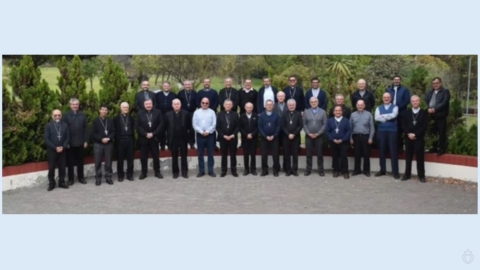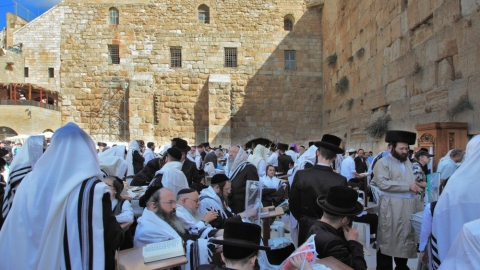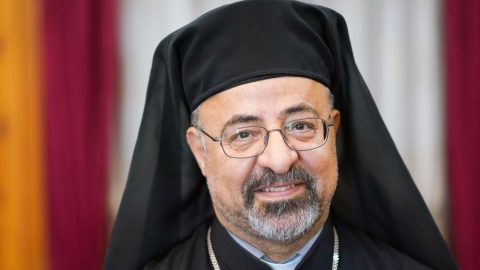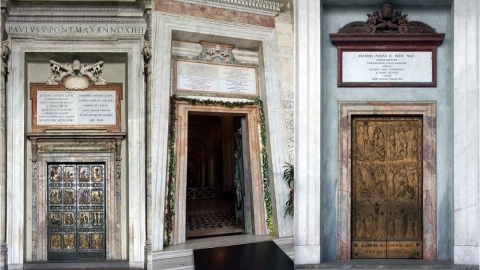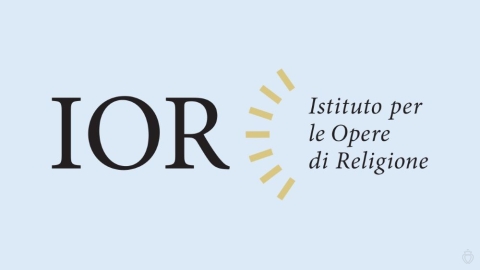Germany: Tensions Around Financing the Synodal Committee

Will money be the stumbling block that puts a stop to the work of the Synodal Committee set up by the German Synodal Path which ended last March? This is the impression left by recent exchanges concerning this structure.
As a reminder, the Synodal Committee, already set up, is composed of the 27 German residential bishops, and the same number of members of the ZdK (Central Committee of German Catholics), as well as 20 members elected by the last Assembly. It is responsible for ensuring the implementation of the approved texts, and for setting up the synodal councils, at least diocesan and parochial ones.
The first tension appeared after five bishops asked Rome if they were obliged to participate in this structure. They were told that they were obviously free, because it is not an official ecclesiastical structure.
The second tension arose after the Curia indicated that there could not be “synodal councils” – bringing together bishops and lay people to discuss certain decisions – at the national level, nor at the diocesan level, because that would be contrary to episcopal power.
The third point of tension that risks signing the death of the structure has just been created. The president of the ZdK, Irme Stetter-Karp, spoke about the hesitations of certain bishops to give the green light to the financing of the Synodal Committee.
The ZdK was angered by a report published on June 1, according to which some German bishops seem to be reluctant to provide the Synodal Committee with the necessary financial means. “An overwhelming majority of bishops voted in favor of the Synodal Committee by the synodal path. Breaking your word destroys credibility,” Stetter-Karp said.
According to the KNA report, the financial decision regarding personnel and material resources for the Synodal Committee was postponed by the bishops in April and then in June. The substantive issue lies in the decision-making on financial matters within the competent association of the dioceses of Germany (VDD), in which the dioceses have grouped their joint activities.
Indeed, since all the dioceses are concerned, decisions must normally be unanimous. However, according to KNA, a letter from the bishop of Regensburg, Rudolf Voderholzer – one of the most conservative in Germany – addressed to his colleagues, attracted attention. He wrote in it that it is not yet clear “whether the VDD will make money available for a Synodal Committee.”
The ZdK is trying to convince them that the Synodal Committee will not harm the bishops or damage their ministry. “It is about continuing the fruitful path that we have taken with the German bishops. Only reforms such as those we have been discussing for three years will sustainably address the causes of the abuse scandal,” Stetter-Karp said.
However, for the president of the ZdK, it is necessary to re-examine the decision-making mechanisms, including in financial matters. Since the supreme decision-making body of the VDD is identical in terms of personnel to the Permanent Council of the Episcopal Conference, it is in fact the 27 diocesan bishops who decide whether the Synodal Committee should be funded or not.
“And this because unanimity is the dominant principle. It empowers those who do not want to fund the Committee,” Stetter-Karp concluded. The vice-president of the ZdK, Wolfgang Klose, is confident: “that the episcopal conference will not allow itself to be blocked by a few bishops in its desire to ensure that the decisions of the synodal path become concrete now.”
(Sources : katholisch.de/FSSPX.Actualités – FSSPX.Actualités)
Illustration : Photo 90800015 © Viktor Micevski | Dreamstime.com
